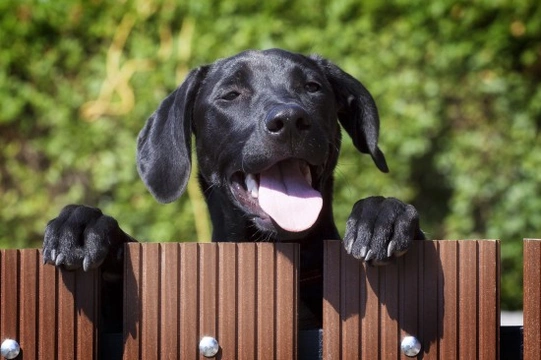
Dog ownership and being a good neighbour
While in many communities, we do not live in such close quarters with our neighbours or know them as well as we did in times gone by, fostering good relations with one’s neighbours is important in order to ensure that everyone is happy and conflict is avoided! While dogs live on virtually every residential street on the UK and anyone who lives in suburbia will expect dogs to live around them, it is important to ensure that the presence of your dog does not cause an irritation or inconvenience to your neighbours, or impinge upon their right to a quiet life!
If you keep a dog in a residential area, read our advice on being a good neighbour and ensuring that your dog does not inconvenience the people living in the houses or flats around you.
Barking and howling
Virtually all dogs will bark on occasion, such as at the sound of the doorbell or if something alarms them. But if your dog is very vocal and barks a lot or is prone to fits of howling, consider if this is likely to be heard from the neighbouring properties or bother your neighbours. Your dog might be very quiet when you are at home with them, but are you sure that your dog does not bark or howl incessantly once they are left alone? Check with your neighbours, and if one of your neighbours complains that your dog is noisy, it is important to address the issue and not simply brush it off.
Dogs loose in the garden
Giving your dog the free run of a safely enclosed garden is great, but ensure that you have adequate fencing to keep your dog from going off visiting your neighbours! Your dog should of course remain on your property unless invited to go somewhere else, and if your neighbour is forever ringing your doorbell to bring back your dog after they have popped next door, this might be annoying them. Also be aware of the possibility that even if your dog cannot get into next door’s garden, they might be able to poke their head through or over the fence and bother your neighbour or intimidate your neighbours when they are in their garden. Talk to your neighbours about how they feel about dogs, and if they are happy with your dog’s behaviour.
Good manners
You will probably run into your neighbours on the driveway or in the street from time to time when with your dog, and unless your neighbour is a friend who loves your dog and is happy to see them, it is important to keep your dog from barking, jumping up or approaching your neighbour without an invitation. Shared driveways and the area immediately in front of or behind your home may be your dog’s territory, in your dog’s opinion, and it is vital that they do not defend it against other people who have the right to be there!
Cats and other small animals
Even dogs that are usually laid back and not interested in going out and about on their own may become fascinated with the presence of neighbouring pets, such as cats or small animals in hutches. It is your responsibility not only to ensure that your dog cannot physically get near to these animals or attack them, but also that they do not intimidate or scare other pets by barking or growling. This is one of the fastest ways to fall out with a neighbour!
Other neighbour’s dogs
There are many advantages to having a neighbour with dogs of their own, not least that they will understand dogs, generally like them, and be empathic to any problems you might be having with your own dog. If you are lucky, you may be able to walk your dogs together or find that your dogs are happy playmates for each other! Make sure again however that your dog does not become an inconvenience and either intimidate or scare neighbouring dogs, or keep hassling them to play from across the fence if this is unwelcome.
Dog waste and mess
It should really go without saying but it is worth mentioning anyway: clean up after your dog at all times. People who leave dog mess in the street or in the area around the home are the pariahs of dog ownership, and give other dog owners a bad name. There are few things more infuriating than living in close quarters with an irresponsible dog owner who does not pick up after their dog, and this is one sure-fire way of irritating your neighbours, whether they own dogs of their own or not.
Make sure that you dispose of your dog waste properly too, bag it up and pack it safely and securely before depositing it into any communal bins.



